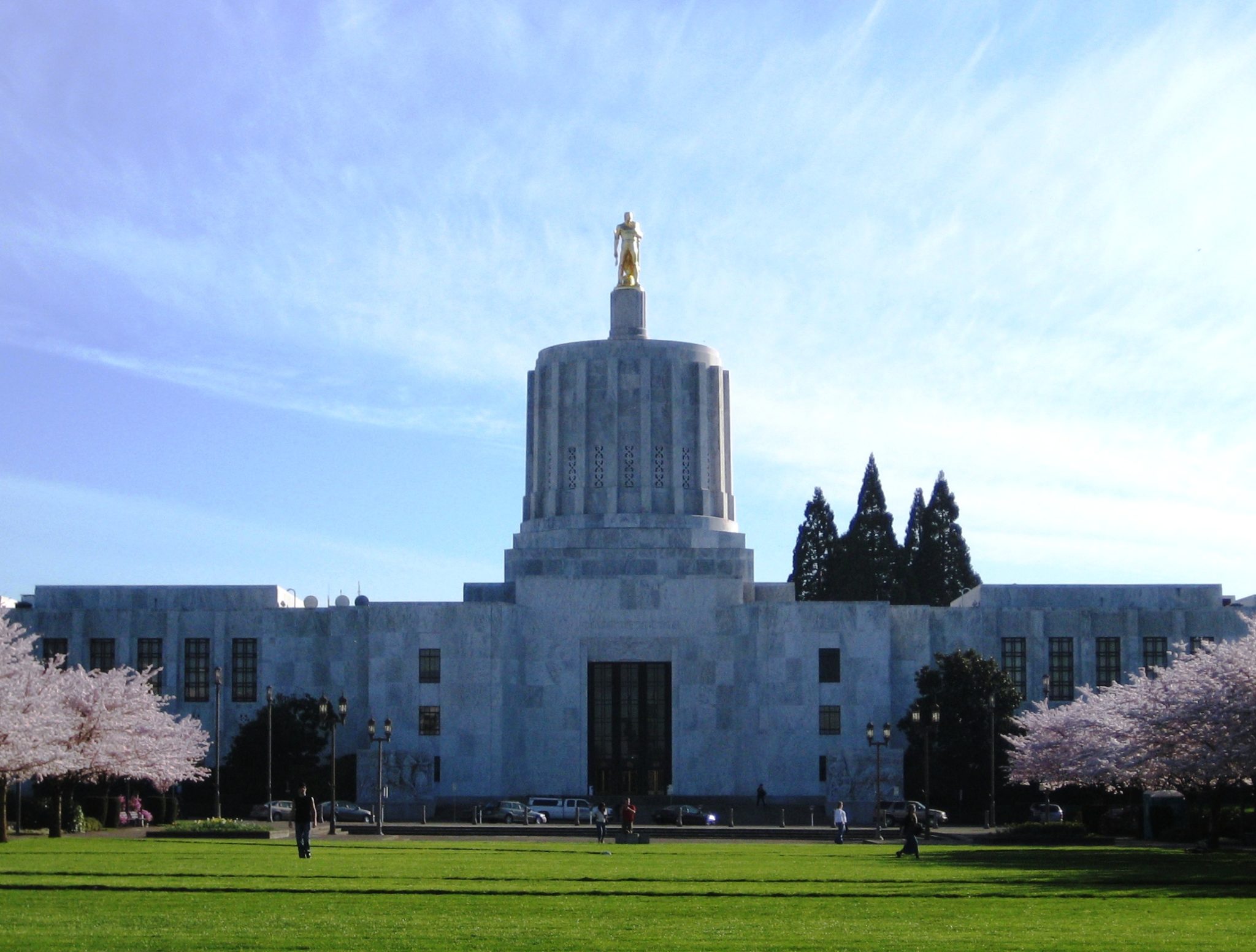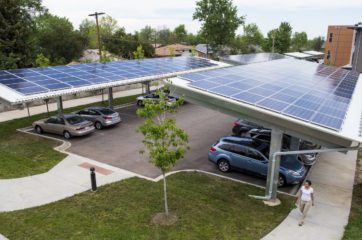A Senate vote on Oregon’s highly-anticipated cap-and-invest bill (HB 2020) was scheduled for yesterday, June 20th, but Senate Republicans have left the Capitol in a last-ditch effort to block the legislation. The GOP lawmakers, holding super minorities in both legislative chambers, have repeatedly proposed amendments to weaken the bill and maintained that cap-and-invest should be deferred to the ballot. Nevertheless, the bill is on the brink of passage.
Though Senate Democrats hold an 18-12 majority, they need at least 20 voting members present for their votes to count, according to state law. So, after discussions between Democrats and Republicans broke down late Wednesday night, the minority party decided to flee the state.
Gov. Kate Brown (D), a long-time champion of the legislation, authorized state police to locate the twelve GOP Senators and return them to the Capitol, at the request of Senate President Peter Courtney (D).
“As the executive of the agency, I am authorizing the State Police to fulfill the Senate Democrats’ request,” Brown’s office said in a statement. “It is absolutely unacceptable that the Senate Republicans would turn their backs on their constituents who they are honor-bound to represent here in this building. They need to return and do the jobs they were elected to do.”
What’s this bill about anyways?
The bill, known as Clean Energy Jobs, will make the state just the second in the nation to put an economy-wide price on greenhouse gas emissions. Its function is two-fold: (1) set a declining cap on greenhouse gas emissions, and (2) invest raised revenue in a range of initiatives, including energy-efficiency, clean energy, green jobs training, and infrastructural upgrades.
The cap applies to all entities responsible for more than 25,000 tons of carbon emissions. That ends up meaning that about 100 entities, collectively responsible for 80% of the states GHG emissions, will be regulated.
The program, which will come into effect in 2021, aims to reduce emissions by 45% by 2035 from 1990 levels, and by 80% by 2050. In order to achieve these reductions, the number of allowances available to compliance entities will decline each year.
The bill is the product of more than a decade’s worth of proposed legislation, an inspiring coalition of hundreds of Oregonian organizations, and the unwavering leadership of the top elected officials in the state.
How did we get here?
From the beginning of the 2019 legislative session, the political opportunity for a cap-and-invest program in Oregon was high. The bill was fervently supported by all the major players in the state government: House Speaker Tina Kotek (D), Senate President Courtney (D), and Gov. Brown (D), among others. Several newly-elected legislators campaigned on the promise to support Clean Energy Jobs, and Democrats’ expanded their majorities in both chambers in the November midterm elections. So, they can pretty much pass whatever they want without the need for bipartisan cooperation. Unless their conservative colleagues flee the scene, that is.
The bill, which has been gaining momentum for some time, was voted through the Joint Committee on Carbon Reduction in late May, and then through the Ways and Means Committee. On Monday, June 17, it passed the House by a 36-24 vote, after six hours of debate. All 22 Republicans voted against it, while all but two Democrats voted in its favor.
This isn’t the first time Oregon Republicans have deployed a walk-out in an attempt to kill legislation. Last month, the GOP lawmakers walked out of the Senate for four days to try to block a school funding tax package, which resulted in Gov. Brown agreeing to table legislation on gun control and vaccine requirements. A part of the May compromise, though, was that Republicans would not utilize the walk-out tactic again.
In a speech on the Senate floor, Senate President Peter Courtney begged the missing lawmakers to return, describing the debacle as the “saddest day” of his legislative career.
What happens now?
Sen. Brian Boquist (R-Dallas), one of the most outspoken voices opposing the climate legislation, indicated his caucus would not be returning.
“Send bachelors and come heavily armed,” Boquist told KGW- TV. “I’m not going to be a political prisoner in the state of Oregon.”
The Senator, along with several other colleagues, is reportedly in Idaho, according to his wife. Each day the lawmakers that are not present for a vote, they will be fined $500 by Gov. Brown’s office, but a GoFundMe campaign in their support has already raised tens of thousands of dollars to cover the cost of these penalties. Oregon State Police have released an FAQ regarding their role in retrieving Senate Republicans.
The bill must be voted on by June 30, the last day of the 2019 legislative session. However, Gov. Brown announced she planned to schedule a special session on July 2 if a vote does not take place before then.
“We will stay in Salem to work until our job is done,” she said.
Read our Letter to the Editor in the Oregonian in support of the legislation.









